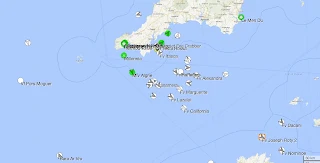The innocuously named Catch App is a new smart phone app being introduced by the Marine Management Organisation - the Government body which regulates the seas around England.
All skippers of England's 2100 fishing boats under ten metres long, are being asked to record the species and weight of fish they catch.
*According to the latest government figures for January 2020, there are 4,140 fishing vessels registered Under10m - of those, 2,237 are under7m.
The Government says the information will be used to monitor fish stocks and help make fishing sustainable for the future. But fishermen and women say the new recording is complicated and one small mistake could turn them into criminals.
With the MMO declining to put on a spokesperson to talk on behalf of them with regard to the CatchApp it is down to Jerry Percy, fisherman and chairman of NUTFA (New Under Ten Fishermans Association), an organisation created to support the Under10m fleet to explain why the app has sparked such a strong reaction.
Fishermen with experience of CatchApp can record their feelings here:
You can catch the entire Farming Today programme here:
All skippers of England's 2100 fishing boats under ten metres long, are being asked to record the species and weight of fish they catch.
*According to the latest government figures for January 2020, there are 4,140 fishing vessels registered Under10m - of those, 2,237 are under7m.
The Government says the information will be used to monitor fish stocks and help make fishing sustainable for the future. But fishermen and women say the new recording is complicated and one small mistake could turn them into criminals.
With the MMO declining to put on a spokesperson to talk on behalf of them with regard to the CatchApp it is down to Jerry Percy, fisherman and chairman of NUTFA (New Under Ten Fishermans Association), an organisation created to support the Under10m fleet to explain why the app has sparked such a strong reaction.
Fishermen with experience of CatchApp can record their feelings here:
You can catch the entire Farming Today programme here:



























